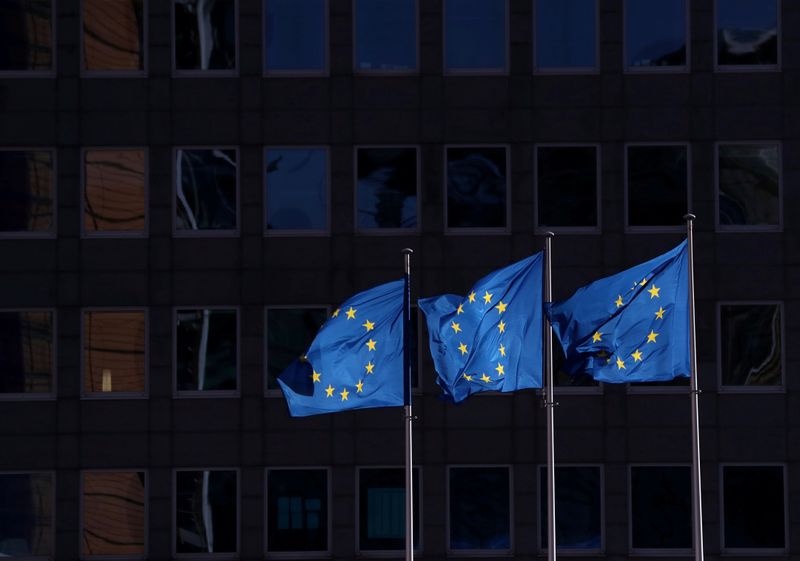BRUSSELS (Reuters) – EU leaders may meet for a face-to-face summit in the coming weeks to bargain over the next joint budget and a linked coronavirus recovery fund, suspending lockdown rules imposed to contain the pandemic, diplomats and officials said.
The European Union has struggled to run on video conferences since going into a gradual lockdown in March to curb the spread of coronavirus, which has ravaged the EU’s economy and thwarted regular gatherings of its national leaders.
Few in the bloc’s hub Brussels, however, believe the intense horse-trading common for EU budget deals could work on Webex, and most EU member states have in any case been easing their lockdowns as infection rates have eased.
“The budget and Recovery Fund cannot be agreed without a physical summit. I haven’t yet met anyone who would think it possible on a video conference,” said a senior EU diplomat.
Technical issues, problems with translation and the less personal nature of video calls make it hard for EU leaders to replicate the atmosphere of their all-night summits, a hallmark of Brussels where they meet to haggle over joint policies.
The bloc’s executive European Commission will propose on Wednesday its blueprint for the 27-nation budget, known as the Multiannual Financial Framework and worth around a trillion euros, and the accompanying coronavirus Recovery Fund.
The EU’s national capitals will then start jockeying to win the most benefits for themselves after France and Germany came together in support of granting handouts worth 500 billion euros through the new fund to kickstart economic growth.
Austria, Sweden, Denmark and the Netherlands stated their opposition to the Franco-German plan, calling for aid to come in the form of repayable loans rather than free grants.
The poorer, eastern EU countries have warned the generous development aid handouts they normally receive to catch up with their more wealthy peers must be cannibalised by any new assistance to countries hit the hardest by the pandemic.
(This story removes typo from lede paragraph)
(Reporting by Gabriela Baczynska; Editing by Mark Heinrich)























